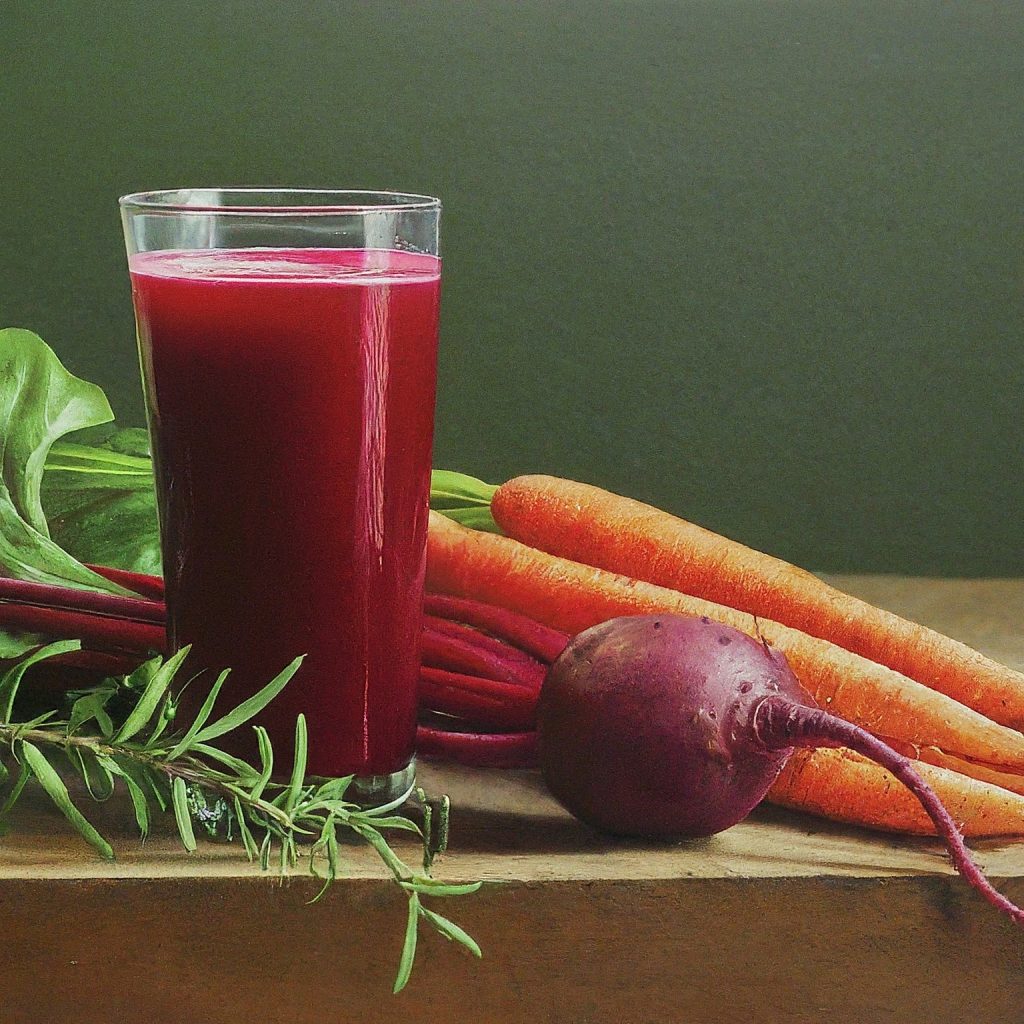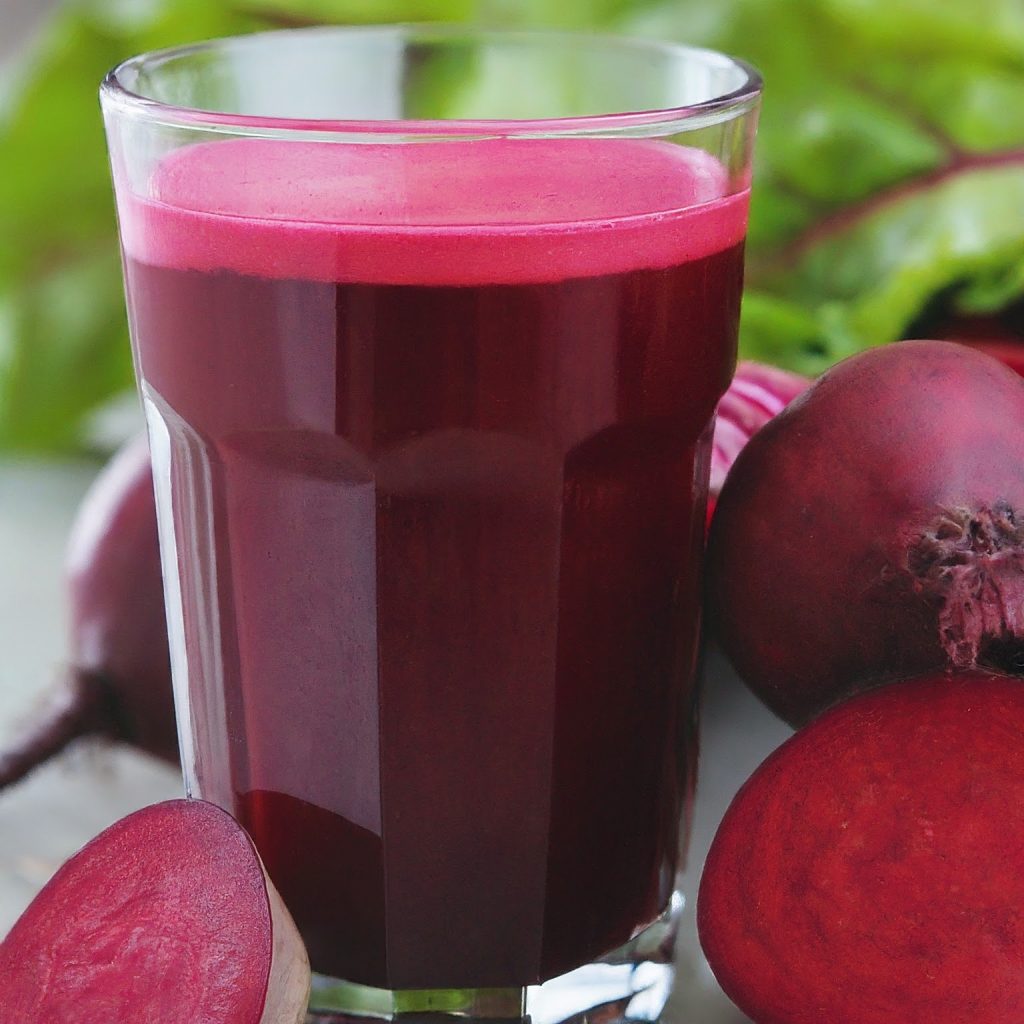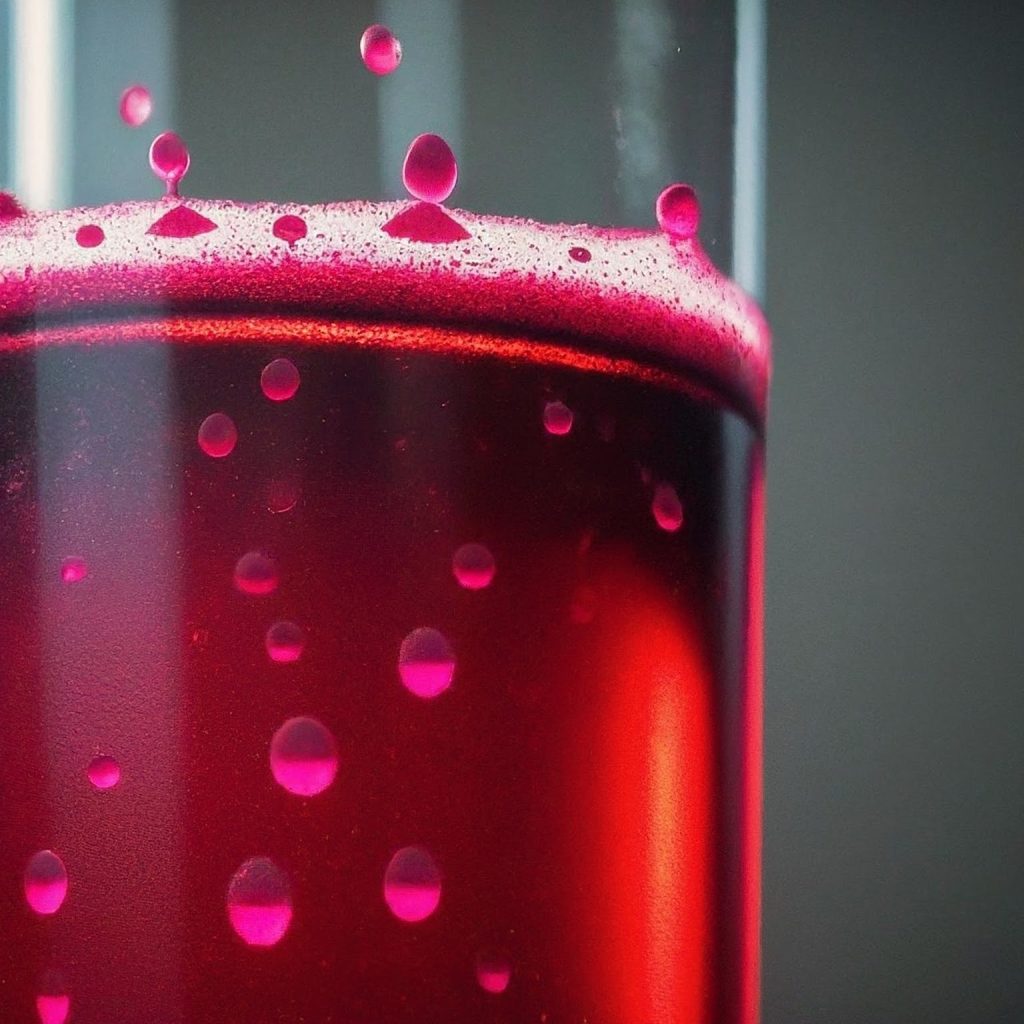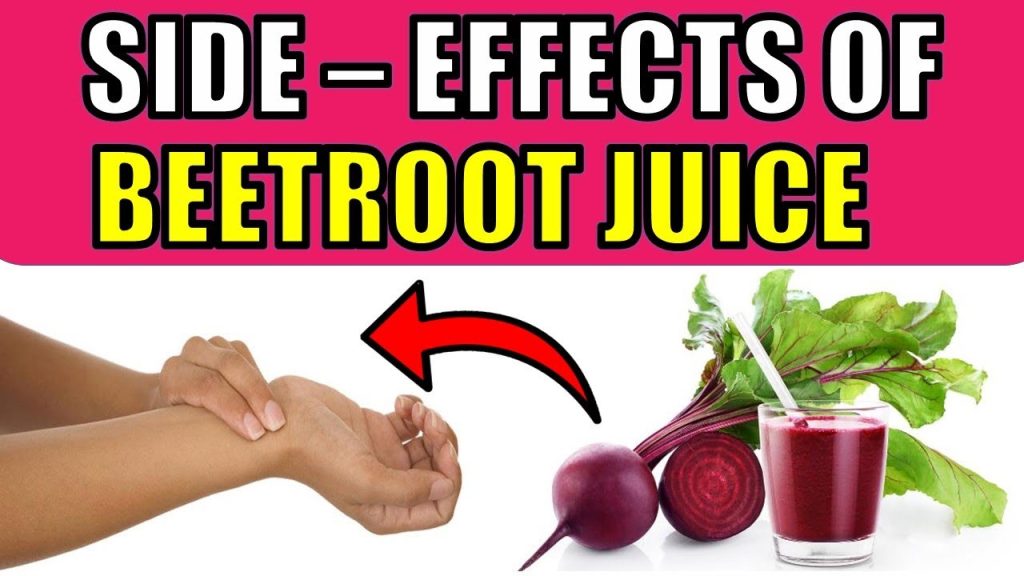Beetroot Juice: Beetroot juice beats nitrate supplements in supporting activity execution
Discover the wonders of Beetroot Juice, a powerful elixir packed with nutrients for enhanced health and vitality. Learn about its benefits, recipes, and more.
Introduction
Unveiling the vibrant hue and wholesome goodness of Beetroot Juice, this article delves into the myriad benefits and enchanting allure of this natural elixir. From its rich nutritional profile to its potential health perks, explore the wonders of Beetroot Juice and embark on a journey towards enhanced well-being.
Unveiling the Power of Beetroot Juice
Beetroot juice, derived from the humble beetroot, stands as a testament to nature’s bounty. Bursting with essential vitamins, minerals, and antioxidants, this crimson elixir serves as a beacon of vitality and wellness.
The Nutritional Powerhouse
Embark on a voyage through the nutritional wonderland of Beetroot Juice, where each sip brims with vitamins A, C, and K, along with an array of essential minerals such as potassium, iron, and manganese. Embrace the wholesome goodness of nature in every drop.
Harnessing Antioxidant Magic
Immerse yourself in the antioxidant-rich embrace of Beetroot Juice, where the presence of betalains and other potent compounds offers a shield against oxidative stress, promoting cellular health and rejuvenation.
Aiding Cardiovascular Health
Journey towards heart health with Beetroot Juice as your trusted companion. Delve into its vasodilatory properties, which help promote healthy blood pressure levels and optimize cardiovascular function, fostering a robust and resilient heart.
Fueling Athletic Performance
Unleash your athletic prowess with Beetroot Juice, hailed for its potential to enhance endurance and exercise performance. Dive into the world of nitrates, where Beetroot Juice emerges as a natural ergogenic aid, empowering athletes to reach new heights.
Exploring Beetroot Juice Recipes
Indulge in the culinary delights of Beetroot Juice with these tantalizing recipes that promise to tantalize your taste buds and invigorate your senses.
Classic Beetroot Blend
Savor the simplicity of a classic Beetroot Juice blend, combining the earthy sweetness of beets with the zing of citrus and the refreshing crispness of cucumber. A harmonious fusion of flavors awaits.
Tropical Beet Delight
Transport your taste buds to paradise with a tropical twist on Beetroot Juice, featuring the exotic allure of pineapple, the creamy richness of coconut water, and a hint of invigorating ginger. Embrace a taste of the tropics with every sip.
Zen Beetroot Infusion
Embark on a journey of serenity with a Zen Beetroot Infusion, marrying the soothing essence of chamomile tea with the vibrant hues of beetroot and a touch of floral sweetness from lavender. Discover tranquility in a glass.
FAQs about Beetroot Juice
- Is Beetroot Juice Good for Blood Pressure? Beetroot juice contains nitrates, which may help lower blood pressure by promoting vasodilation, supporting overall cardiovascular health.
- Can Beetroot Juice Boost Athletic Performance? Yes, Beetroot Juice is believed to enhance athletic performance due to its nitrate content, which may improve endurance and oxygen utilization during exercise.
- Does Beetroot Juice Aid Digestion? With its fiber content and potential to promote gut health, Beetroot Juice may support digestion and alleviate digestive discomfort for some individuals.
- How Much Beetroot Juice Should I Drink Daily? The recommended daily intake of Beetroot Juice varies depending on individual health status and tolerance. It’s advisable to start with small amounts and monitor how your body responds.
- Are There Any Side Effects to Drinking Beetroot Juice? While generally safe for consumption, Beetroot Juice may cause temporary discoloration of urine or stools due to its vibrant pigments. Additionally, some individuals may experience digestive discomfort or allergic reactions.
- Can Beetroot Juice Improve Brain Function? Emerging research suggests that the nitrates in Beetroot Juice may have cognitive benefits, potentially enhancing blood flow to the brain and supporting cognitive function.
Conclusion
In conclusion, Beetroot Juice emerges as a true champion of health and vitality, offering a symphony of flavors and a treasure trove of nutrients. From cardiovascular support to athletic enhancement, this crimson elixir holds the key to a vibrant and rejuvenated life. Embrace the essence of Beetroot Juice and embark on a journey towards holistic well-being.
Beetroot juice beats nitrate supplements in supporting activity execution
In a new survey article distributed in the diary Wildernesses in Nourishment, specialists in the US blended what is had some significant awareness of the helpful impacts of beetroot juice (BRJ) concerning exercise limit and physiological capability.
They reasoned that the advantages of BRJ outperform those of dietary nitrate (NO3-) and nitrate salts (NIT) due to the assortment of phytonutrients it contains, supporting preparation and recuperation results.
Dietary nitrates are known to have work out related benefits
Nitrate supplementation can lessen the oxygen cost of high-impact work out, influencing muscle contractility, vascular capability, practice execution and economy, transformations to preparing, and muscle harm and agony.
These advantages are remembered to happen through an expansion in the creation of nitric oxide in the body, which brings down circulatory strain and directs other physiological reactions. Mixed greens and beets are rich wellsprings of NO3-, and the impacts of BRJ have frequently been believed to be identical to those of NIT if NO3-dosages are similar.
In any case, this supposition doesn’t take the different polyphenols and different parts of BRJ that might offer more prominent advantages than NIT, i.e., benefits not straightforwardly connected with its nitrate-extravagance.
BRJ, as well as being wealthy in nitrates, additionally contains potassium, magnesium, folic corrosive, ascorbic corrosive, and biotic. The polyphenolic intensifies found in BRJ incorporate betanin and other betacyanins.
Since NO3- – free BRJ doesn’t essentially adjust oxygen take-up, execution during activity, or muscle digestion, other naturally dynamic parts of BRJ could work related to the nitrates rather than autonomously.
Contrasting NIT and BRJ for work out related results
Early investigations that revealed the predominance of BRJ over NIT observed that there were no huge contrasts during activities of moderate power; in any case, for extreme focus work out, oxygen take-up was altogether brought down by BRJ.
This could be on the grounds that BRJ improves mitochondrial effectiveness, hence raising the economy of activity. A later report approved these discoveries and furthermore found that BRJ deferred the time before exhaustion set in during extreme focus exercises.
From these perceptions, researchers have inferred that BRJ could be more viable at bringing down oxygen cost during extreme vigorous activity, in this way upgrading execution results.
In any case, an open inquiry stays with regards to why this impact is seen at middle nitrate dosages however not lower or higher ones. A significant restriction of these examinations is that blinding the members in clinical preliminaries to the conspicuous contrasts among NIT and BRJ is troublesome.
Components through which BRJ might have more noteworthy activity benefits
Scientists have estimated that different parts in BRJ, as polyphenols, could build NO3-retention contrasted with NIT. In any case, plasma NO3-and NO2-levels seem, by all accounts, to be indistinguishable somewhere in the range of two and four hours of ingesting NIT and BRJ.
This, joined with the way that somewhere around one of the examinations didn’t gauge the NO3-levels in the BRJ supplement, which frequently shift fundamentally, implies that the noticed contrasts could be because of unseen contrasts in nitrate bioavailability.
Remarkably, one review that thought about the impact of BRJ and NIT on erratic activity recuperation found no distinction in muscle harm following rehashed drop bounces yet found that BRJ fundamentally decreased muscle touchiness. This could be because of its calming and cell reinforcement properties.
One more review that took a gander at run span preparing found signs that BRJ could facilitate the physiological strain engaged with preparing and in this manner consider more serious preparation and better preparation related results. Notwithstanding, the generalizability of these discoveries is restricted by a little example size, implying that high-performing exceptions could fundamentally impact the outcomes.
Ends
There seem, by all accounts, to be signs that BRJ could be better than NIT with regards to specific activity related results.
If NO3-levels are genuinely equivalent between the two, which has not forever been laid out, this suggests that different parts of BRJ, as polyphenols, are acting in collaboration with nitrates to upgrade practice results. Notwithstanding, further examination is expected to recognize what parts, if any, are driving these impacts and how they work.
Also, nitrate bioavailability seems, by all accounts, to be comparative among BRJ and NIT, as seen by their consequences for circulatory strain, so it is conceivable that these parts don’t increment bioavailability but instead delay it or decrease cell harm. There is right now restricted proof that BRJ’s viability is on the grounds that it diminishes oxidative tissue pressure.
The creators suggest that future preliminaries that think about NIT and BRJ ought to straightforwardly quantify NO3-levels in both, adapting to fluctuation in nitrate levels. They ought to likewise dazzle members to contrasts between the two medicines utilizing thickening specialists, food shading, and fake enhancing. In the event that blinding is absurd, physiological reactions can be surveyed notwithstanding execution.
how to make beetroot juice ?
How to Make Beetroot Juice: A Complete Guide
Learn how to make beetroot juice at home easily and quickly. Discover the health benefits of beetroot juice and step-by-step instructions to create this nutritious drink.
Introduction:
Beetroot juice is a vibrant and nutritious beverage that offers a plethora of health benefits. Whether you’re looking to boost your energy levels, improve your cardiovascular health, or simply indulge in a delicious drink, making beetroot juice at home is a fantastic option. In this comprehensive guide, we’ll delve into the process of creating beetroot juice from scratch, exploring its nutritional value, health benefits, and answering common questions about this ruby-red elixir.
1. Benefits of Beetroot Juice:
Beetroot juice is packed with essential nutrients and compounds that promote overall well-being. From improving athletic performance to supporting heart health, the benefits of beetroot juice are numerous and impressive.
2. Nutritional Value of Beetroot:
Beetroots are rich in vitamins, minerals, and antioxidants, making them a powerhouse of nutrition. Understanding the nutritional content of beetroots is crucial for harnessing their health benefits in juice form.
3. Selecting the Perfect Beetroot:
Choosing fresh and high-quality beetroots is the first step towards crafting delicious beetroot juice. Learn how to select the best beetroots and ensure optimal flavor and nutrition in your homemade juice.
4. Preparing Your Ingredients:
Before you begin juicing, it’s essential to prepare your ingredients properly. From washing and peeling the beetroots to gathering additional ingredients, thorough preparation sets the stage for a successful juicing process.
5. Juicing Process:
The juicing process involves extracting the liquid goodness from fresh beetroots and other complementary ingredients. Discover various methods for juicing beetroots and expert tips for achieving the perfect consistency and flavor in your juice.
6. Enhancing Flavor Profiles:
While beetroot juice is delicious on its own, adding complementary ingredients can elevate its flavor profile and nutritional value. Explore creative ways to enhance the taste and texture of your beetroot juice with simple additions and flavor combinations.
7. Health Benefits of Beetroot Juice:
Delve into the myriad health benefits offered by beetroot juice, from boosting stamina and endurance to promoting cardiovascular health and reducing inflammation. Discover how incorporating beetroot juice into your daily routine can enhance your overall well-being.
8. Incorporating Beetroot Juice into Your Diet:
Discover versatile ways to incorporate beetroot juice into your daily diet and lifestyle. From standalone beverages to smoothie blends and culinary creations, there are countless ways to enjoy the nutritional benefits of beetroot juice.
9. Frequently Asked Questions (FAQs) about Beetroot Juice:
FAQ 1: How often should I drink beetroot juice?
Beetroot juice can be consumed daily as part of a balanced diet. However, it’s essential to listen to your body and adjust your intake based on your individual preferences and health goals.
FAQ 2: Can I store beetroot juice for later consumption?
While fresh beetroot juice is best consumed immediately to retain its nutritional value and flavor, you can store leftover juice in an airtight container in the refrigerator for up to 48 hours.
FAQ 3: Does beetroot juice have any side effects?
While beetroot juice is generally safe for consumption, some individuals may experience temporary changes in urine color or digestive discomfort. It’s advisable to start with small quantities and monitor your body’s response.
FAQ 4: Can beetroot juice help lower blood pressure?
Studies suggest that regular consumption of beetroot juice may help lower blood pressure levels due to its high nitrate content, which promotes vasodilation and improved blood flow.
FAQ 5: Is beetroot juice beneficial for athletes?
Beetroot juice is a popular choice among athletes and fitness enthusiasts due to its potential to improve endurance, enhance oxygen utilization, and promote recovery post-exercise.
FAQ 6: Can I combine beetroot juice with other juices?
Yes, beetroot juice can be combined with other fruit and vegetable juices to create delicious and nutritious blends. Experiment with different combinations to find your perfect flavor profile.
Conclusion:
In conclusion, learning how to make beetroot juice at home opens up a world of health and wellness benefits. By following the simple steps outlined in this guide, you can enjoy the delicious taste and nutritional richness of beetroot juice while reaping its myriad health rewards. Incorporate beetroot juice into your daily routine and embark on a journey towards enhanced vitality and well-being.
The Incredible Beetroot Juice Benefits: Unveiling Nature’s Powerhouse
Unlock the myriad beetroot juice benefits with our comprehensive guide. Discover how this natural elixir can boost your health and wellness.
Introduction
Beetroot juice benefits are gaining widespread recognition for their profound impact on health and vitality. Packed with essential nutrients and antioxidants, beetroot juice offers a plethora of advantages, ranging from enhancing athletic performance to promoting heart health. In this article, we delve into the various dimensions of beetroot juice benefits, exploring its remarkable effects on the human body.
1. Understanding Beetroot Juice Benefits
Beetroot juice benefits encompass a wide array of health-enhancing properties. From improving cardiovascular health to boosting stamina and detoxifying the body, the benefits of beetroot juice are truly remarkable.
2. Enhanced Athletic Performance
Athletes and fitness enthusiasts alike are turning to beetroot juice as a natural performance enhancer. Rich in nitrates, beetroot juice helps improve blood flow and oxygen delivery to muscles, leading to increased endurance and stamina during physical activity.
3. Heart Health Support
One of the most notable beetroot juice benefits is its positive impact on heart health. The nitrates found in beetroot juice help dilate blood vessels, reducing blood pressure and lowering the risk of cardiovascular diseases such as heart attacks and strokes.
4. Improved Blood Circulation
Regular consumption of beetroot juice can significantly improve blood circulation throughout the body. By dilating blood vessels and increasing nitric oxide levels, beetroot juice promotes optimal blood flow, delivering essential nutrients and oxygen to tissues and organs.
5. Detoxification and Cleansing
Beetroot juice acts as a natural detoxifier, helping to rid the body of harmful toxins and impurities. Its high antioxidant content helps neutralize free radicals and supports liver function, aiding in the body’s natural detoxification processes.
6. Digestive Health Benefits
Beetroot juice is a rich source of dietary fiber, which plays a crucial role in promoting healthy digestion. Fiber helps regulate bowel movements, prevent constipation, and support the growth of beneficial gut bacteria, contributing to overall digestive wellness.
7. Immune System Support
The immune-boosting properties of beetroot juice make it a valuable addition to any diet. Packed with vitamins, minerals, and antioxidants, beetroot juice helps strengthen the immune system, protecting the body against infections and illnesses.
8. Cognitive Function Enhancement
Research suggests that beetroot juice may have positive effects on cognitive function and brain health. The nitrates in beetroot juice improve blood flow to the brain, enhancing cognitive performance, memory, and mental clarity.
9. Skin Health and Radiance
The nutrients and antioxidants found in beetroot juice promote healthy skin from within. By combating free radical damage and supporting collagen production, beetroot juice helps maintain youthful, radiant skin and may even help alleviate common skin conditions.
10. Managing Inflammation
Chronic inflammation is linked to a variety of health issues, including arthritis, heart disease, and cancer. Beetroot juice contains anti-inflammatory compounds that help reduce inflammation throughout the body, promoting overall health and well-being.
11. Regulating Blood Sugar Levels
For individuals with diabetes or those concerned about blood sugar levels, beetroot juice may offer significant benefits. Studies suggest that beetroot juice helps improve insulin sensitivity and regulate blood sugar levels, making it a valuable addition to a diabetes-friendly diet.
12. Supporting Weight Management
Incorporating beetroot juice into a balanced diet may support weight management efforts. Low in calories and rich in fiber, beetroot juice helps promote satiety, curb cravings, and maintain healthy body weight when consumed as part of a calorie-controlled diet.
13. Promoting Bone Health
The nutrients found in beetroot juice, including calcium, magnesium, and vitamin C, play essential roles in bone health and strength. Regular consumption of beetroot juice may help prevent osteoporosis and support overall bone density and integrity.
14. Anti-Aging Properties
The powerful antioxidants in beetroot juice help combat oxidative stress and slow down the aging process at the cellular level. By neutralizing free radicals and protecting cells from damage, beetroot juice promotes longevity and vitality.
15. Enhancing Endurance and Stamina
Beetroot juice benefits extend to enhancing endurance and stamina, making it a popular choice among athletes and fitness enthusiasts. The natural nitrates in beetroot juice improve oxygen utilization in the body, delaying fatigue and improving exercise performance.
Beetroot Juice Benefits
Unveiling the myriad benefits of beetroot juice, it’s clear that this vibrant elixir packs a powerful punch when it comes to health and wellness. From supporting heart health and improving athletic performance to promoting radiant skin and boosting cognitive function, beetroot juice offers a multitude of advantages for overall well-being.
Frequently Asked Questions
- What are the potential side effects of drinking beetroot juice? While beetroot juice is generally safe for most people, some individuals may experience temporary side effects such as digestive discomfort or pink urine due to its natural pigments. It’s essential to start with small amounts and monitor your body’s response.
- Can beetroot juice lower blood pressure? Yes, beetroot juice has been shown to help lower blood pressure levels due to its high nitrate content, which promotes vasodilation and improved blood flow. However, individuals taking blood pressure medications should consult with their healthcare provider before adding beetroot juice to their diet.
- Is beetroot juice good for weight loss? While beetroot juice is low in calories and rich in nutrients, it’s not a magic solution for weight loss. However, incorporating beetroot juice into a balanced diet can support weight management efforts by promoting satiety and providing essential nutrients.
- How much beetroot juice should I drink daily? The recommended daily intake of beetroot juice varies depending on individual health goals and tolerance levels. It’s generally recommended to start with small amounts, such as 4-8 ounces per day, and gradually increase as tolerated.
- Can beetroot juice improve athletic performance? Yes, beetroot juice is known for its ability to enhance athletic performance by improving oxygen utilization and endurance. Athletes often consume beetroot juice before workouts or competitions to maximize their physical performance.
- Is beetroot juice safe during pregnancy? While beetroot juice is a nutritious beverage, pregnant women should exercise caution due to its high nitrate content. Consuming large amounts of beetroot juice may increase nitrate levels in the body, which could potentially pose risks to fetal health. It’s advisable to consult with a healthcare provider before consuming beetroot juice during pregnancy.
Conclusion
In conclusion, the benefits of beetroot juice are vast and impressive, offering a natural and effective way to support overall health and wellness. From enhancing athletic performance and promoting heart health to boosting cognitive function and supporting weight management, beetroot juice stands out as a nutritional powerhouse.
Unveiling the Hidden Truth: Beetroot Juice Side Effects Exposed!
Discover the potential beetroot juice side effects in this comprehensive guide. Uncover the truths behind consuming beetroot juice and its impacts on health.
Introduction
Welcome to an insightful journey into the realm of beetroot juice side effects. As health-conscious individuals increasingly turn to natural remedies and superfoods, beetroot juice has gained popularity for its purported health benefits. However, like any dietary supplement, it’s essential to understand both the positives and negatives. Delve into this article to explore the potential side effects of beetroot juice and make informed choices for your well-being.
Beetroot Juice Side Effects
Unraveling the Consequences of Beetroot Juice Consumption
Digestive Discomforts
Indulging in beetroot juice may lead to digestive discomforts such as bloating, gas, and stomach cramps. The high fiber content of beetroots can sometimes overwhelm sensitive digestive systems, causing temporary disturbances.
Blood Pressure Fluctuations
Beetroot juice is renowned for its ability to lower blood pressure, thanks to its nitrate content. However, individuals prone to hypotension should exercise caution, as excessive consumption may lead to dizziness or fainting spells.
Urine Discoloration
A harmless yet startling side effect of beetroot juice is urine discoloration. The presence of betalains, natural pigments found in beetroots, can tint urine pink or red. While alarming, this phenomenon poses no health risk.
Kidney Stone Risk
Individuals predisposed to kidney stones should monitor their beetroot juice intake. The oxalates present in beetroots can contribute to the formation of calcium oxalate stones in susceptible individuals.
Allergic Reactions
Although rare, some individuals may experience allergic reactions to beetroot juice. Symptoms can range from mild itching and hives to severe anaphylaxis. If you suspect an allergy, discontinue use and seek medical attention promptly.
Iron Absorption Interference
Beetroot juice contains compounds that may hinder the absorption of non-heme iron from plant-based sources. Individuals relying on vegetarian or vegan diets should be mindful of this potential interaction.
FAQs (Frequently Asked Questions)
Are there any serious side effects of beetroot juice? While beetroot juice is generally safe for consumption, excessive intake may lead to serious side effects such as kidney damage or gastrointestinal issues. It’s essential to consume beetroot juice in moderation and consult with a healthcare professional if you have concerns.
Can beetroot juice lower blood pressure too much? Yes, beetroot juice has vasodilatory effects, which can potentially lower blood pressure to unsafe levels, especially in individuals already taking antihypertensive medications. Monitoring blood pressure levels regularly is crucial when incorporating beetroot juice into your diet.
Does beetroot juice interact with medications? Beetroot juice may interact with medications such as blood pressure-lowering drugs and medications metabolized by the liver. Consult your healthcare provider before consuming beetroot juice, especially if you’re on prescription medications.
Is beetroot juice safe during pregnancy? Pregnant women can enjoy beetroot juice in moderation as part of a balanced diet. However, excessive consumption should be avoided due to its high nitrate content, which could potentially impact fetal health.
Can beetroot juice cause kidney stones? Beetroot juice contains oxalates, compounds that can contribute to the formation of kidney stones in susceptible individuals. Those with a history of kidney stones should consume beetroot juice cautiously and maintain adequate hydration.
How much beetroot juice is safe to drink daily? The safe intake of beetroot juice varies among individuals and depends on factors such as overall health, medications, and dietary habits. As a general guideline, consuming 1-2 cups (250-500 ml) of beetroot juice per day is considered safe for most adults.
Conclusion
In conclusion, while beetroot juice offers numerous health benefits, it’s crucial to be aware of potential side effects and exercise moderation in consumption. By understanding the risks and benefits associated with beetroot juice, individuals can make informed decisions regarding their dietary choices. Remember, moderation is key to harnessing the nutritional power of beetroot juice while minimizing potential adverse effects.




